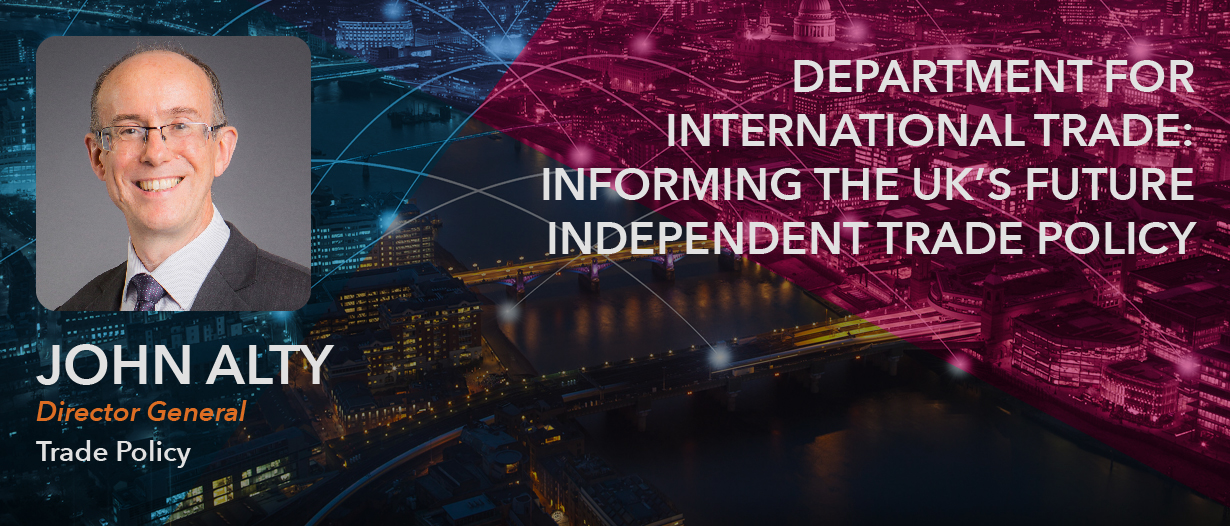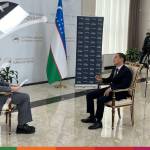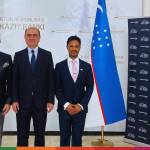Our departure from the EU will give the UK the ability to take control of its own independent trade policy for the first time in more than 40 years.
The Department for International Trade (DIT) is working to increase its international trade flows and grow the number of UK businesses exporting goods across the globe.
In addition to seeking a long term deal with the EU, we intend to strike new free trade agreements with our key trading partners around the world such as the US, Australia and New Zealand as well as potentially joining the Trans-Pacific Partnership.

This will provide greater access to overseas markets for UK businesses, products and consumers.
As part of these preparations, DIT is actively engaging with UK business, civil society, academics and trade unions through a series of newly established stakeholder engagement networks.
We have created a Strategic Trade Advisory Group to inform our future trade policy and discuss how we can best realise the opportunities to boost trade.
On top of this, we have established a number of Expert Trade Advisory Groups (ETAGs) so we can have more detailed discussions about specific sectors. Each group is comprised of a range of sector experts providing the valuable expertise needed that will support a world class trade policy.
Take, for example, our new Customs Trade Advisory Group. This will help inform DIT’s work in collaborating with customs agencies internationally as we look to develop innovative customs policy and procedures to better facilitate international trade.
Research has consistently shown that costs to international traders from wider non-tariff barriers, which can include issues caused by international customs procedures, are often higher than tariffs themselves.
The failure to implement efficient processes at the border can reduce the benefits of any new free trade agreement.

Moreover, customs policy is hugely complex, varying dramatically from country to country depending on the type, volume and value of goods being imported.
Despite these challenges, the Department for International Trade has already made headway in overcoming trade barriers around the world.
In particular, DIT’s network of overseas advisors routinely play a valuable role in helping businesses struggling with customs matters, and have helped to facilitate the release of goods unnecessarily held up at the border. They achieve even greater impact by resolving market access issues, some of which involve costly, outdated and unnecessary checks or restrictions.
We know that breaking down market access barriers makes it easier for UK businesses around the world, potentially opening billions of pounds in exporting and investment opportunities. As we leave the EU, we are making sure we have our own arrangements to address these barriers and open markets.
Close collaboration and communication with business is essential, as it ensures that we can focus our efforts on those barriers that matter the most to them. That is why, we recently launched an easily accessible reporting form on Great.gov.uk which allows businesses of all sizes to report trade barriers they encounter. This also allows us to assess and prioritise barriers more effectively, develop plans and allocate resources, and act to remove them where it is possible.
Through close communication with business and our expert groups, we are making sure our trade policy is commensurate with business’s needs.
The valuable input and feedback from business partners plays a vital role in supporting ongoing discussions with foreign governments and preparations for negotiating new, ambitious free trade agreements.
Your engagement will enable all sectors and regions of the UK economy to take advantage of opportunities, improve people’s livelihoods as well as the country’s economic productivity.

Mark Abrams, Head of Trade Finance, Trade Finance Global, said:
I am delighted to be a member of the Strategic Trade Advisory Group (STAG). National trade policy is changing, and we must make sure it works for businesses across the whole of the UK. The 16 STAG members represent business, civil society and beyond, with the aim of ensuring that the UK is ready to seize the opportunities of Brexit. In our second meeting of the STAG in September, we discussed the department’s priorities in addition to preparing for Brexit – to negotiate new and ambitious free trade agreements, prepare business to trade and focus on attracting investment, specifically through free ports. The group was also introduced to the work of DIT US trade policy team, the World Trade Organisation and work being done to reduce barriers to trading for businesses.The STAG will meet again in the New Year.




























